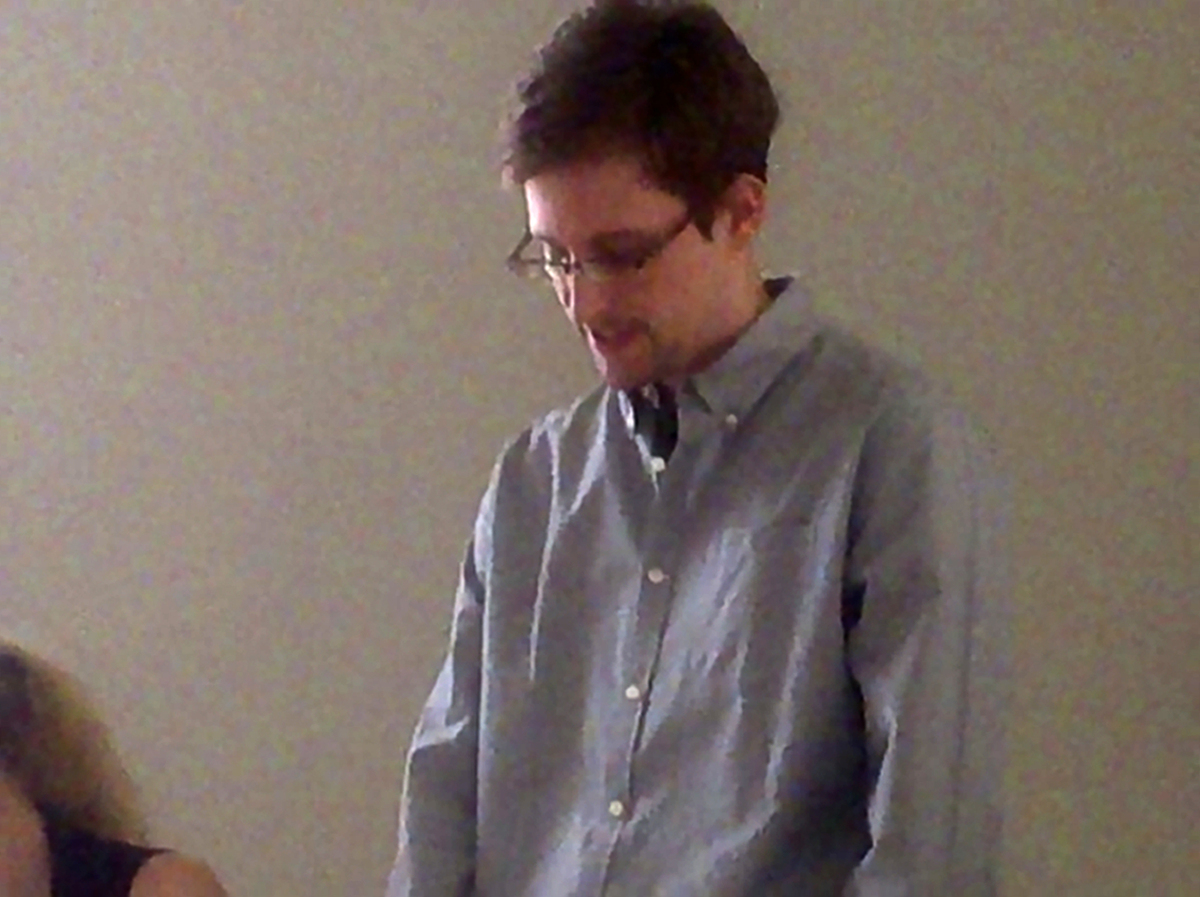Alan Rusbridger, editor of The Guardian, wrote on Monday about an unsettling encounter with "security experts" from the U.K.'s GCHQ intelligence agency.
According to Rusbridger, "a very senior government official" contacted him about two months ago demanding the surrender or destruction of all materials in the publication's possession relating to the surveillance operations uncovered by Edward Snowden.
About a month later, Rusbridger recalls receiving a phone call "from the centre of government" in which he was told, "You've had your fun. Now we want the stuff back." He goes on to explain:
There followed further meetings with shadowy Whitehall figures. The demand was the same: hand the Snowden material back or destroy it. I explained that we could not research and report on this subject if we complied with this request. The man from Whitehall looked mystified. "You've had your debate. There's no need to write any more."
During one meeting, Rusbridger explained to an official that if the British government were to take legal steps in order to roadblock the paper's reporting, the work could simply be done outside of the country. That's when things took a disturbing turn:
The man was unmoved. And so one of the more bizarre moments in the Guardian's long history occurred – with two GCHQ security experts overseeing the destruction of hard drives in the Guardian's basement just to make sure there was nothing in the mangled bits of metal which could possibly be of any interest to passing Chinese agents. "We can call off the black helicopters," joked one as we swept up the remains of a MacBook Pro.
Despite this apparent attempt at intimidation, as well as the previously reported nine-hour detention of Glenn Greenwald's partner David Miranda at London's Heathrow airport, Rusbridger explained that The Guardian "will continue to do patient, painstaking reporting on the Snowden documents, we just won't do it in London."
Greenwald has been similarly undeterred by recent events. Following the detention of Miranda under the controversial schedule 7 portion of Britain's Terrorism Act, Greenwald stated, "I will be far more aggressive in my reporting from now. I am going to publish many more documents. I am going to publish things on England too. I have many documents on England's spy system. I think they will be sorry for what they did."
Rusbridger's full column can be read here.
Original Article
Source: huffingtonpost.com
Author: Adam Goldberg
According to Rusbridger, "a very senior government official" contacted him about two months ago demanding the surrender or destruction of all materials in the publication's possession relating to the surveillance operations uncovered by Edward Snowden.
About a month later, Rusbridger recalls receiving a phone call "from the centre of government" in which he was told, "You've had your fun. Now we want the stuff back." He goes on to explain:
There followed further meetings with shadowy Whitehall figures. The demand was the same: hand the Snowden material back or destroy it. I explained that we could not research and report on this subject if we complied with this request. The man from Whitehall looked mystified. "You've had your debate. There's no need to write any more."
During one meeting, Rusbridger explained to an official that if the British government were to take legal steps in order to roadblock the paper's reporting, the work could simply be done outside of the country. That's when things took a disturbing turn:
The man was unmoved. And so one of the more bizarre moments in the Guardian's long history occurred – with two GCHQ security experts overseeing the destruction of hard drives in the Guardian's basement just to make sure there was nothing in the mangled bits of metal which could possibly be of any interest to passing Chinese agents. "We can call off the black helicopters," joked one as we swept up the remains of a MacBook Pro.
Despite this apparent attempt at intimidation, as well as the previously reported nine-hour detention of Glenn Greenwald's partner David Miranda at London's Heathrow airport, Rusbridger explained that The Guardian "will continue to do patient, painstaking reporting on the Snowden documents, we just won't do it in London."
Greenwald has been similarly undeterred by recent events. Following the detention of Miranda under the controversial schedule 7 portion of Britain's Terrorism Act, Greenwald stated, "I will be far more aggressive in my reporting from now. I am going to publish many more documents. I am going to publish things on England too. I have many documents on England's spy system. I think they will be sorry for what they did."
Rusbridger's full column can be read here.
Original Article
Source: huffingtonpost.com
Author: Adam Goldberg

No comments:
Post a Comment